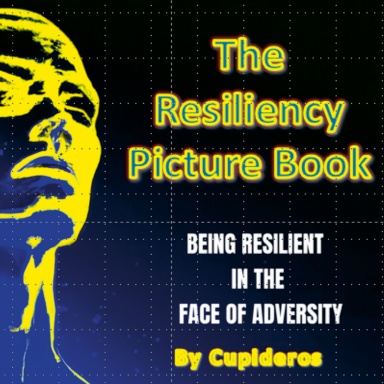
How to Write a Song?
Sukiann was determined to write the perfect song, so I shared my website with her. With a smile on her face, she thanked me for leading her to a world of endless inspiration and creativity.
Tips on Writing a Great Song 02.18.2024
Introduction Writing a song can be an incredibly fulfilling and creative experience.
It allows you to express your thoughts, emotions, and experiences in a unique and powerful way.
However, the process of writing a song can also seem daunting and overwhelming for many people.
The good news is that anyone can learn how to write a song with the right approach and techniques.
In this article, we will guide you through the step-by-step process of how to write a song.
Step 1: Choose Your Theme or Concept The first step in writing any song is to have an idea or concept in mind.
This could be anything from personal experiences, feelings, relationships, social issues or even something as simple as an object or place that inspires you.
Take some time to brainstorm ideas and choose one that resonates with you the most.
Step 2: Develop Your Chosen Theme Once you have chosen your theme or concept, it’s time to develop it further by gathering more details about it.
You could do this by asking yourself questions such as: - What specific aspect of my chosen theme do I want to focus on? - How does this theme make me feel? - What message do I want to convey through my song? By answering these questions, you will start building on your initial idea and giving it more depth.
Step 3: Decide on the Structure of Your Song There are various structures that songs follow but one common structure is Verse-Chorus-Verse-Chorus-Bridge-Chorus.
The verse usually sets up the story while the chorus serves as its main hook – often repeating throughout the entire track.
The bridge acts as a break from both verse and chorus while adding new information before returning back to another round of chorus.
While following this structure isn’t necessary for every single song out there; sticking with such popular methods may help if you’re just starting out.
Step 4: Focus On Lyrics Lyrics are the heart and soul of a song.
They give your song meaning, depth, and purpose.
As you start writing your lyrics, remember to stay true to your chosen theme or concept.
Use imagery, metaphors, and storytelling techniques to convey your message effectively.
You can also draw inspiration from other songs or poems that resonate with you.
Remember that lyrics don’t have to be perfect on the first try – they can always be edited and revised later on.
Step 5: Create a Melody Once you have written out your lyrics, it’s time to create a melody for them.
This is where you decide what kind of mood or vibe you want for your song – whether it’s upbeat and energetic or mellow and emotional.
Experiment with different chords, rhythms, and melodies until you find one that complements your lyrics well.
Don't worry if you’re not musically inclined - there are plenty of online tools such as chord generators or melodic loops that can help in creating an interesting melody.
Step 6: Add Instrumentation Now it's time to add instrumentation to bring life into the song.
Depending on the type of music genre/style; instruments used may vary greatly from pianos/guitars/drums/bass etc.
.
You could either play these yourself (if proficient enough) else hire professional musicians who specialize in playing certain instruments like drums etc.
.
Step 7: Arrange Your Song Structure With all the elements coming together now including instrumental parts;, when we get down into arranging everything according to our decided structure mentioned above i.
e Verse-Chorus-Verse-Chorus-Bridge-Chorus Assemble all verses at once followed by the chorus' then bridge before returning to repeating verse/chorus sections.
If needed; this step also involves adding outros/intros/hooks which make up additional sections besides main structure stated earlier.
Step 8: Practice & Refine Practice makes perfect, and this applies to songwriting as well.
Once you have your initial draft of the song, practice singing it with the melody and instrumentation to see how everything fits together.
You may also want to get feedback from others – friends, family or even fellow musicians – who can provide constructive criticism on your work.
Use their feedback to refine and improve your song until you’re satisfied with the final product.
Step 9: Record Your Song Recording your song is an important step in making it come to life.
You could record it yourself if you have access to recording equipment or hire a professional studio for a more polished sound.
Remember that recording doesn’t necessarily mean just vocals - all instrumental parts must be recorded separately too.
Step 10: Mix & Master Mixing and mastering are crucial steps in giving your song a professional touch.
Mixing involves balancing all the elements of the track such as volume levels, EQs (equalization), panning etc.
, while mastering ensures that the overall sound quality is consistent throughout the entire track.
If you’re not familiar with these processes, it’s best to leave them to a professional audio engineer.
Step 11: Protect Your Work Once you have completed all these steps and have a finished product that you’re proud of, it’s important to protect your work by copyrighting it.
This will ensure that no one else can use or claim ownership of your creation without permission.
Short Tips for Writing A Great Song
1) Keep It Simple: Don’t overcomplicate things when writing a song.
Sometimes simple lyrics paired with catchy melodies can make for an unforgettable tune.
2) Be Authentic: Write about what truly inspires you because authenticity translates into good music.
Don't try too hard; let emotions flow naturally!
3) Use Metaphors & Imagery: These literary devices help add depth and emotion to songs by painting vivid pictures in listeners' minds.
4) Collaborate With Others: Working with other musicians and songwriters can bring fresh perspectives and ideas to your work.
5) Don't Be Afraid to Edit & Revise: Songwriting is a process, and you may need to revise or edit your lyrics or melody multiple times before it feels just right.
Don't be afraid to make changes until you're satisfied with the final product.
6) Listen to Different Genres of Music: Exposing yourself to various genres of music can inspire new ideas for your own songs.
You never know what might spark your creativity!
7) Keep a Notebook Handy: Inspiration can strike at any moment, so always have a notebook or voice recorder on hand to capture any sudden bursts of creativity.
Conclusion Writing a song is an art form that takes time, patience, and practice.
But with the right approach and techniques, anyone can learn how to write a great song.
Remember that there’s no one formula for writing a hit song – it’s all about being true to yourself and authentically expressing your emotions.
So keep experimenting, collaborating, and honing your skills as a songwriter – who knows where it might take you!




